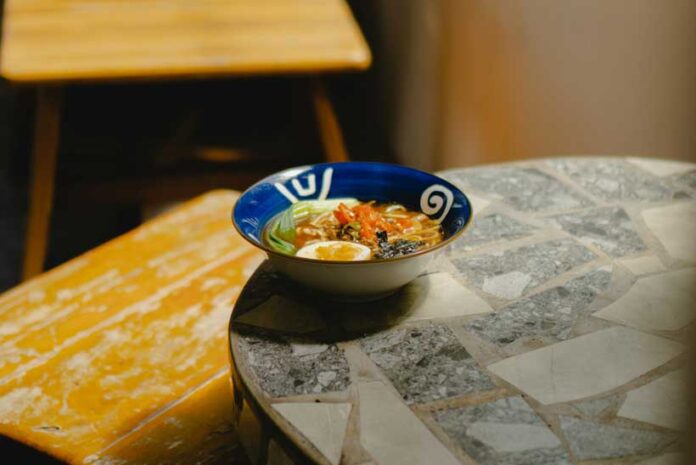Gastrodiplomacy, the use of food as a means to promote cultural exchange and international relations, has gained significant traction worldwide. Indonesia, with its rich and diverse culinary heritage, is leveraging gastrodiplomacy to enhance its global image, boost tourism, and foster economic growth. This article explores the progress of gastrodiplomacy in Indonesia, highlighting key initiatives, successes, and challenges, while providing an overview of the impact on Indonesia’s international relations and economic development.
The Concept of Gastrodiplomacy
Gastrodiplomacy involves using a country’s culinary heritage as a tool for public diplomacy, promoting cultural understanding, and building relationships between nations (Rockower, 2012). It operates on the premise that sharing food can bridge cultural divides, create mutual respect, and open avenues for dialogue. Countries such as Thailand, South Korea, and Peru have successfully implemented gastrodiplomacy programs, leading to increased global recognition and tourism.
Indonesia’s culinary landscape is characterized by a vast array of flavors and ingredients, influenced by its diverse ethnic groups and historical trade routes. From the spicy rendang of Sumatra to the sweet and savory gudeg of Java, Indonesian cuisine reflects a rich tapestry of cultural influences (Ishige, 2001). This diversity makes Indonesian food an ideal ambassador for the country’s culture.
Key Initiatives in Indonesian Gastrodiplomacy
1. Indonesia Spice Up the World Program
Launched in 2021, the “Indonesia Spice Up the World” program aims to promote Indonesian cuisine internationally by establishing 4,000 Indonesian restaurants worldwide by 2024 (Ministry of Tourism and Creative Economy, 2021). The initiative focuses on increasing the availability of Indonesian food, enhancing culinary skills through training programs, and promoting key dishes such as rendang, nasi goreng, and satay.
2. Culinary Diplomacy Events
Indonesia has actively participated in international culinary festivals and expos, such as the World Expo in Dubai and the Culinary Diplomacy Workshop in Washington, D.C. These events provide platforms for showcasing Indonesian cuisine, engaging with international audiences, and fostering cultural exchange (Indonesian Ministry of Foreign Affairs, 2021).
3. Promotion of Indonesian Spices
Indonesia has a long history as a spice producer, dating back to the era of the Spice Trade. Efforts to rebrand Indonesian spices on the global stage include the “Indonesia Spice Trail” initiative, which highlights the historical and cultural significance of spices like nutmeg, cloves, and cinnamon. These initiatives aim to boost the export of Indonesian spices and promote their use in international cuisine (Ministry of Trade, 2021).
Impact on Tourism and Economy
1. Boosting Tourism
Gastrodiplomacy has the potential to significantly boost tourism by attracting food enthusiasts and culinary tourists. The promotion of Indonesian cuisine abroad serves as an invitation to explore the country’s culinary heritage firsthand. This influx of tourists contributes to the local economy and supports small businesses, from street food vendors to high-end restaurants (UNWTO, 2017).
2. Economic Benefits
The economic impact of gastrodiplomacy extends beyond tourism. The global promotion of Indonesian cuisine and spices leads to increased exports of food products and ingredients. The “Indonesia Spice Up the World” program, for example, aims to generate significant revenue through the establishment of Indonesian restaurants abroad and the export of food products (Ministry of Tourism and Creative Economy, 2021). This not only supports farmers and producers but also creates job opportunities within the food and hospitality industries.
Challenges and Future Directions
1. Maintaining Authenticity
One of the main challenges in gastrodiplomacy is maintaining the authenticity of the cuisine while adapting to local tastes and dietary preferences. Ensuring that Indonesian food served abroad remains true to its roots requires standardized recipes, quality ingredients, and trained chefs (Rockower, 2012). Efforts to certify restaurants and provide training for chefs can help address this challenge.
2. Building Infrastructure
Expanding the global presence of Indonesian cuisine requires a robust infrastructure, including supply chains for authentic ingredients, partnerships with local distributors, and effective marketing strategies. Investment in these areas is crucial for the success of gastrodiplomacy initiatives (UNWTO, 2017).
3. Leveraging Technology
Technology plays a vital role in modern gastrodiplomacy. Digital platforms and social media can amplify the reach of culinary promotions, engage global audiences, and create virtual culinary experiences. The Indonesian government and culinary ambassadors should leverage technology to showcase cooking demonstrations, share recipes, and interact with international food enthusiasts (Ministry of Tourism and Creative Economy, 2021).
Case Studies
1. Rendang: A Global Icon
Rendang, a slow-cooked beef dish from West Sumatra, has become an international culinary icon. It was named the “World’s Most Delicious Food” by CNN Travel in 2011, bringing global attention to Indonesian cuisine (CNN Travel, 2011). The promotion of rendang through gastrodiplomacy has led to its inclusion in menus of Indonesian restaurants worldwide and inspired international chefs to recreate the dish.
2. Nasi Goreng Campaign
Nasi goreng, Indonesian fried rice, has been the focus of various promotional campaigns. The dish is simple yet flavorful, making it accessible to international palates. Campaigns highlighting nasi goreng have included cooking competitions, social media challenges, and collaborations with international chefs (Indonesian Ministry of Foreign Affairs, 2021). These efforts have increased the dish’s popularity and recognition globally.
Conclusion
Gastrodiplomacy in Indonesia has made significant strides, leveraging the country’s rich culinary heritage to enhance its global image, boost tourism, and foster economic growth. Initiatives such as the “Indonesia Spice Up the World” program and participation in international culinary events have showcased Indonesian cuisine to a global audience. While challenges remain, including maintaining authenticity and building infrastructure, the future of Indonesian gastrodiplomacy looks promising. By continuing to innovate and invest in culinary promotion, Indonesia can further solidify its position on the global culinary stage and reap the cultural and economic benefits.








